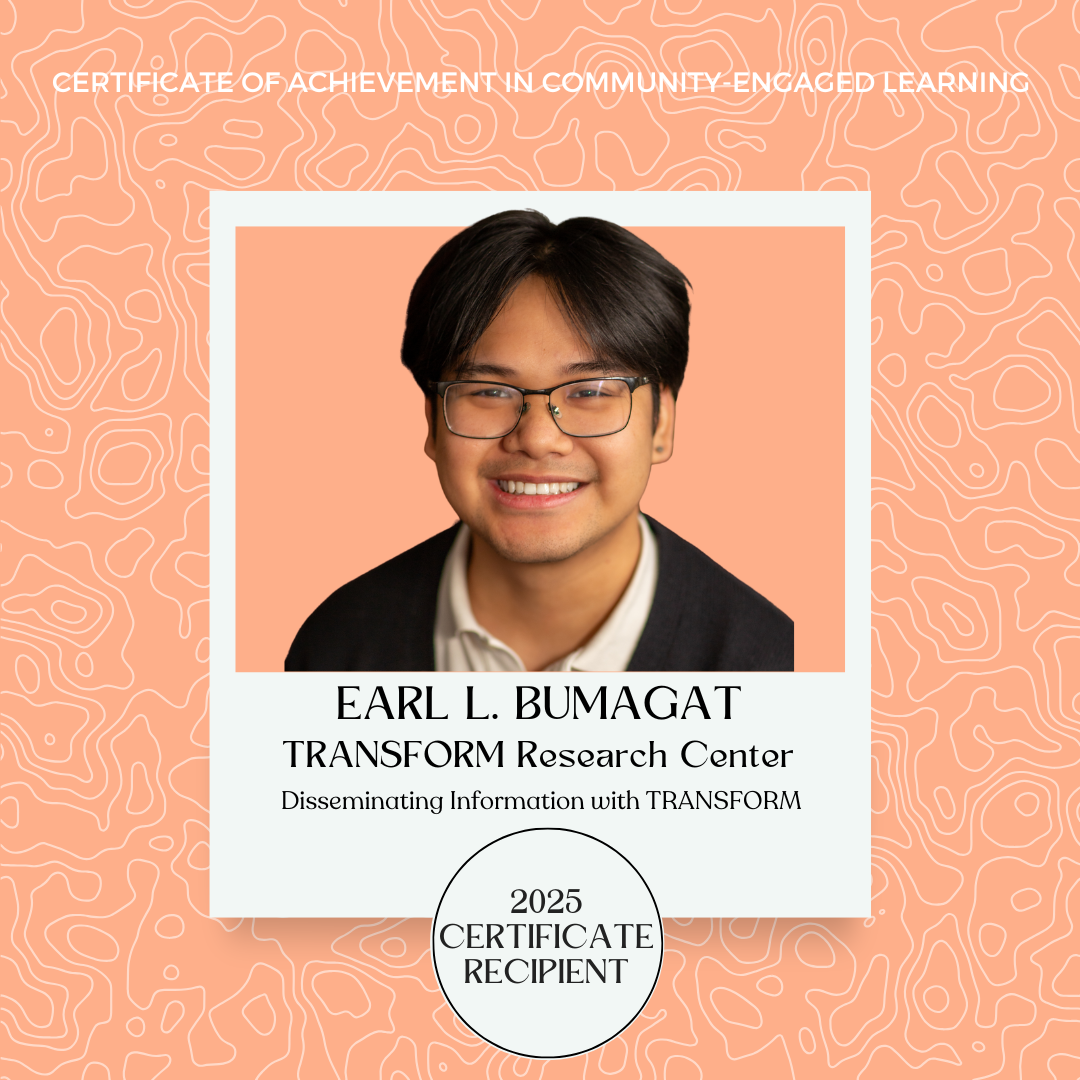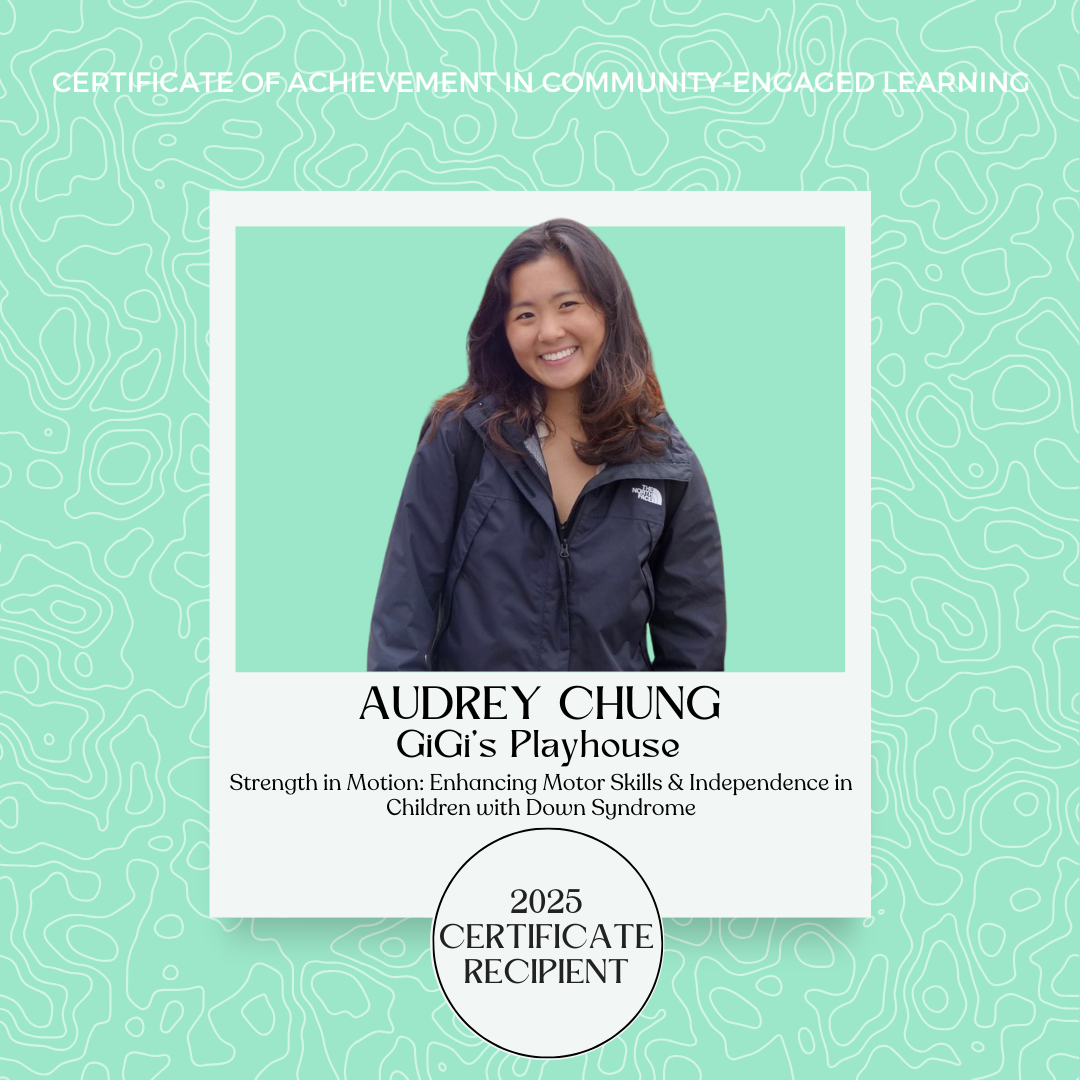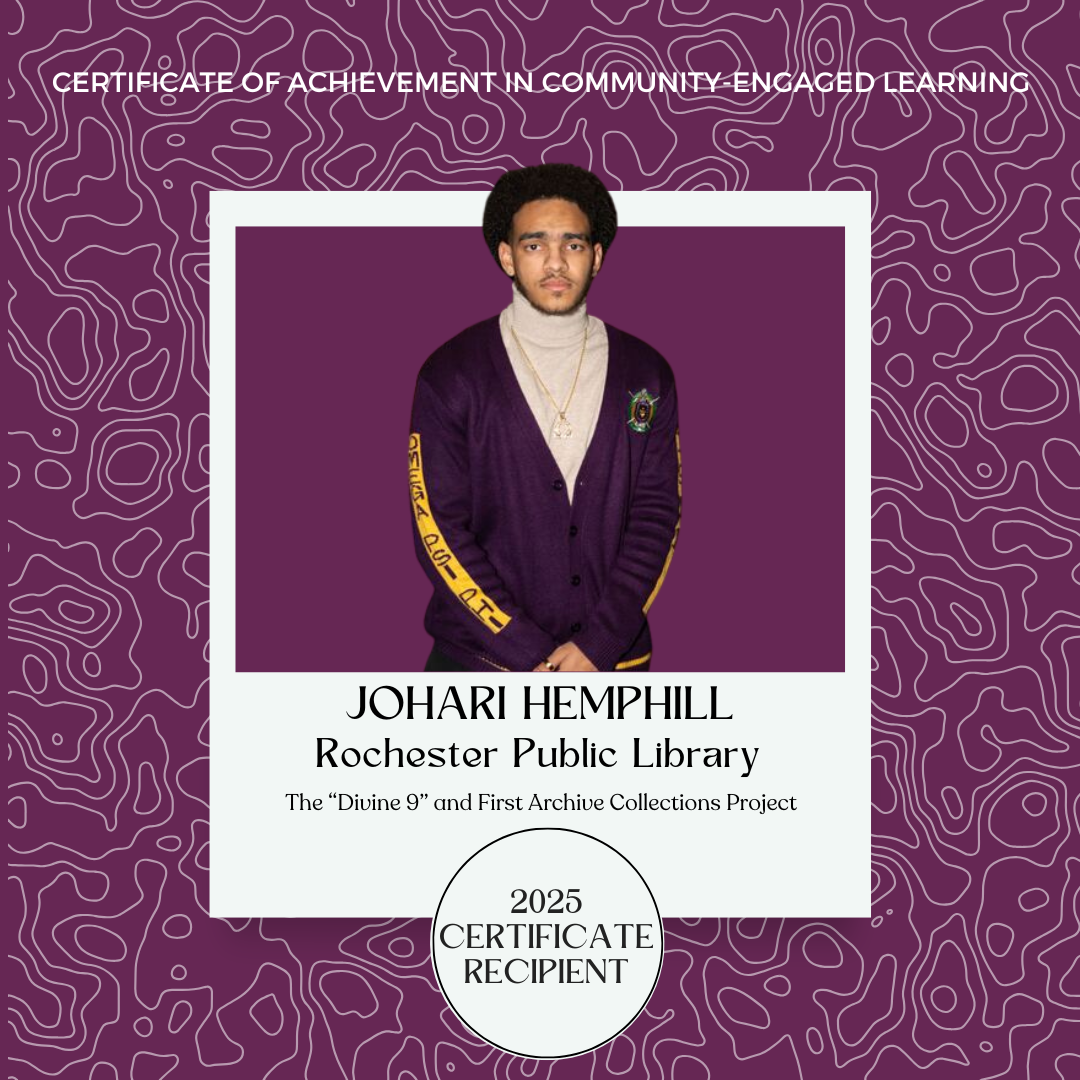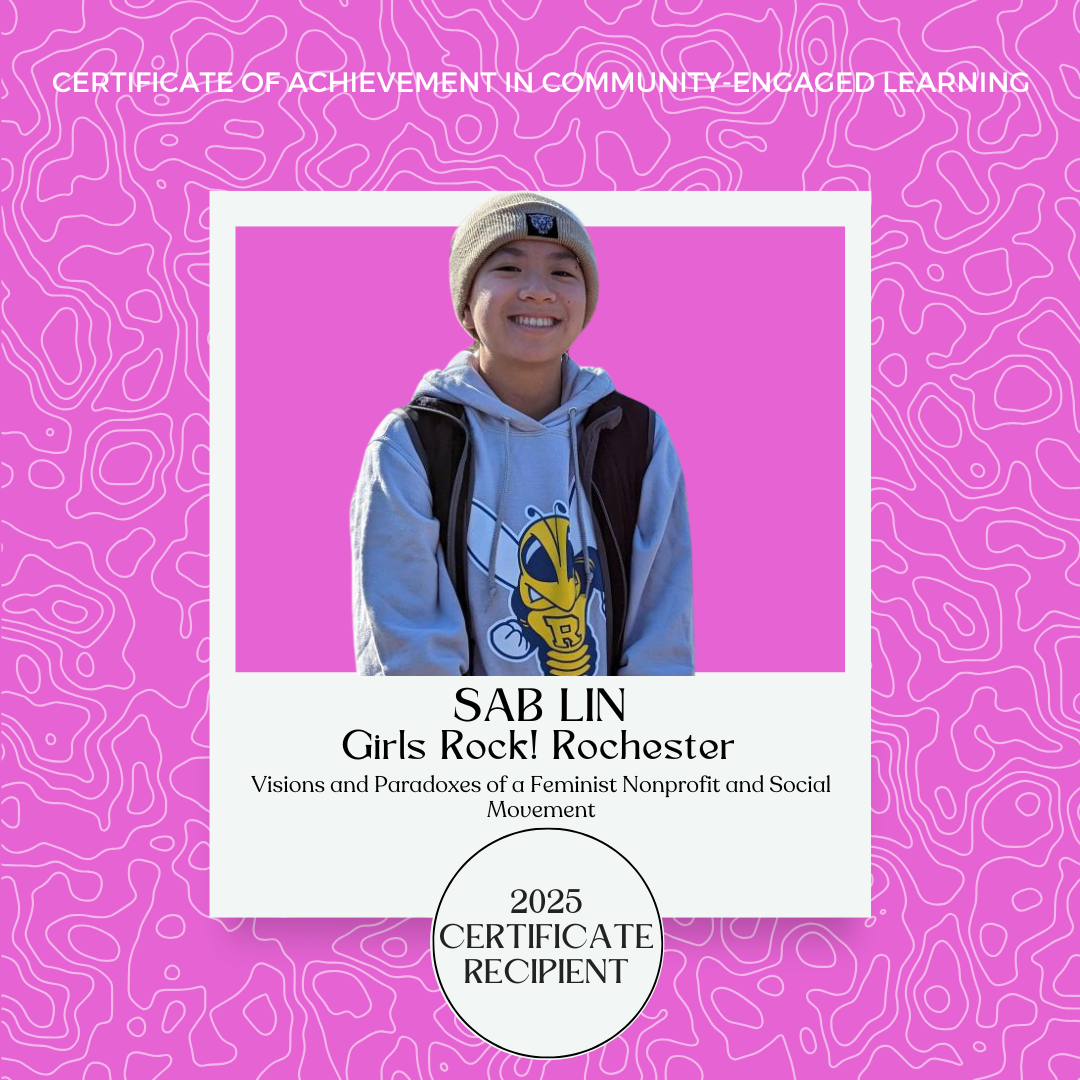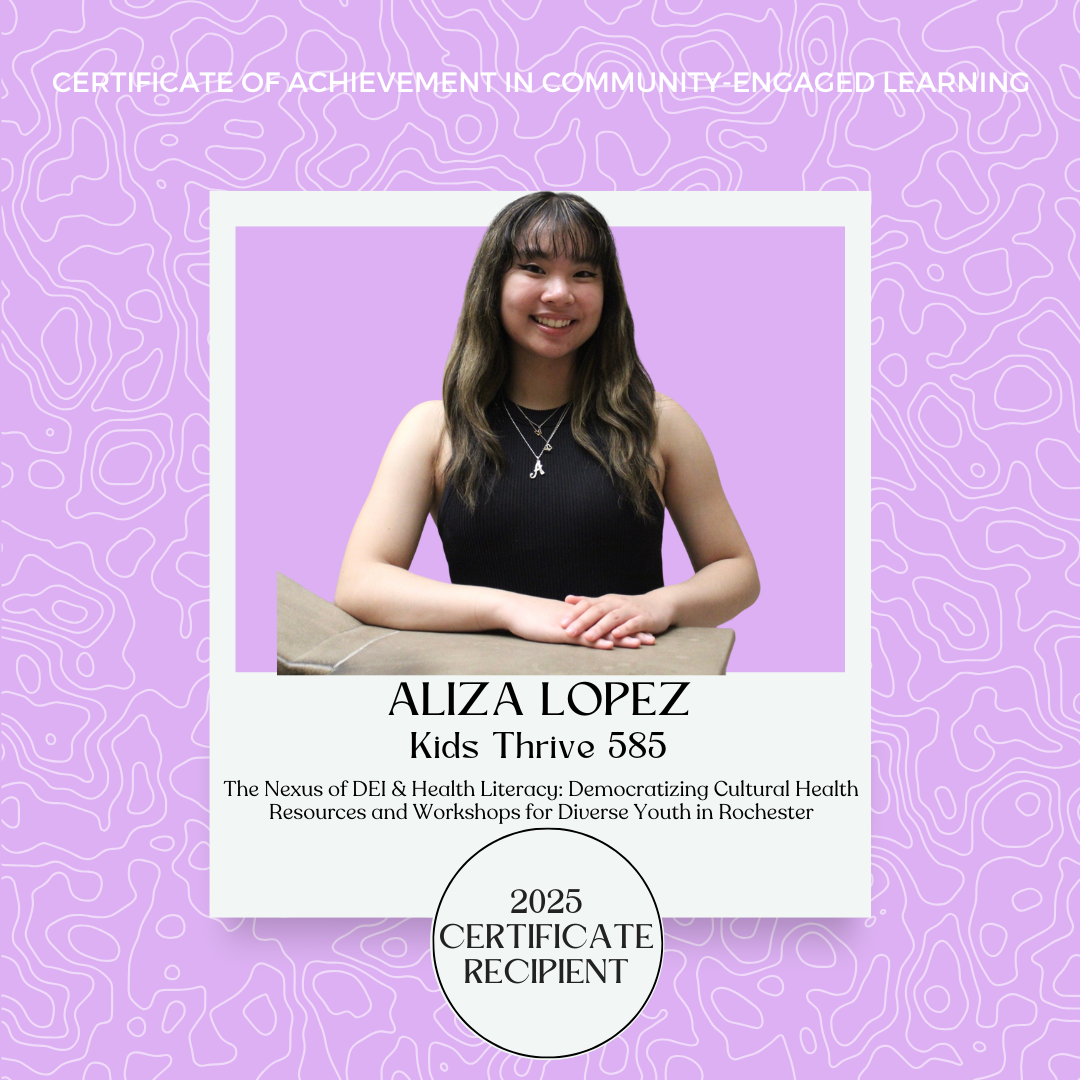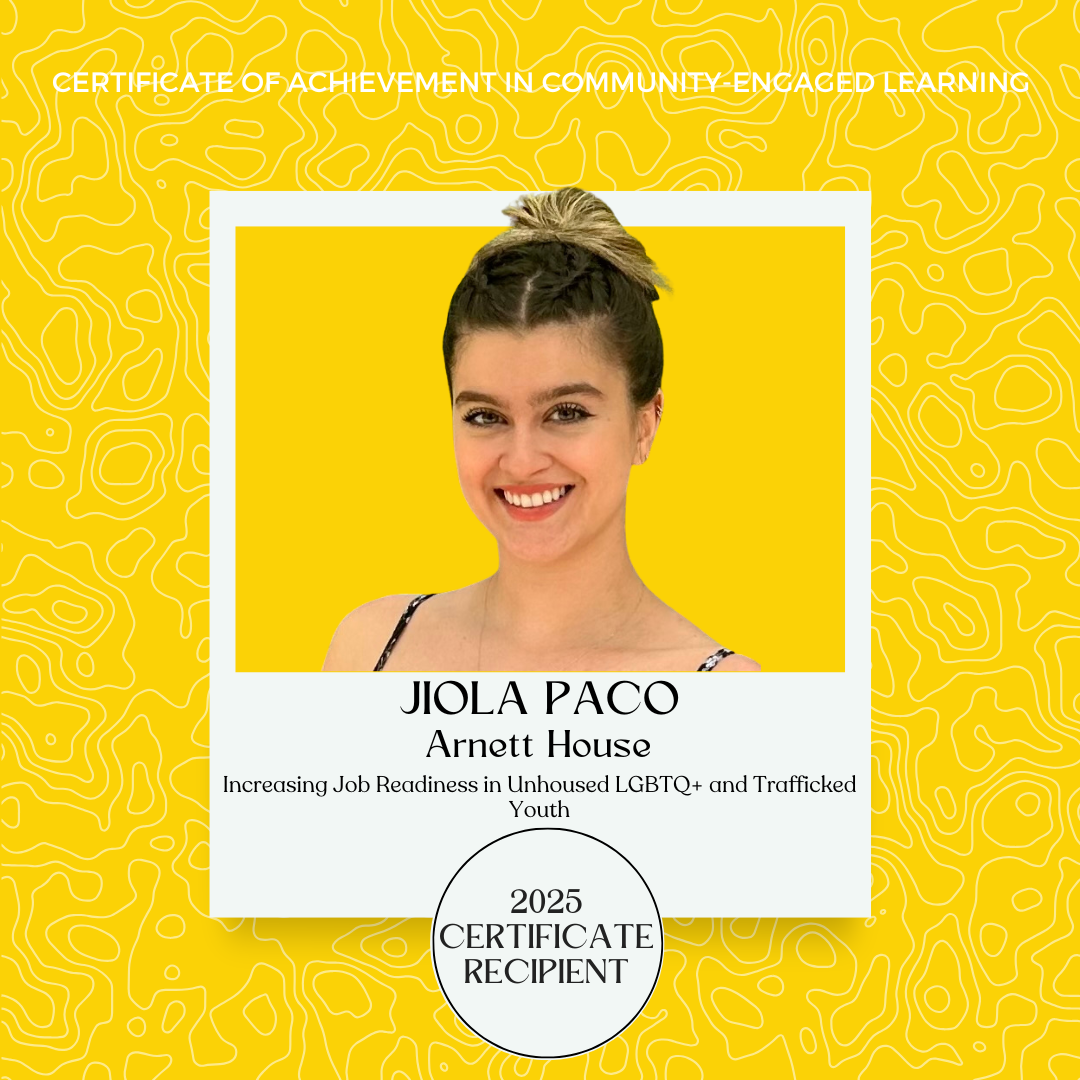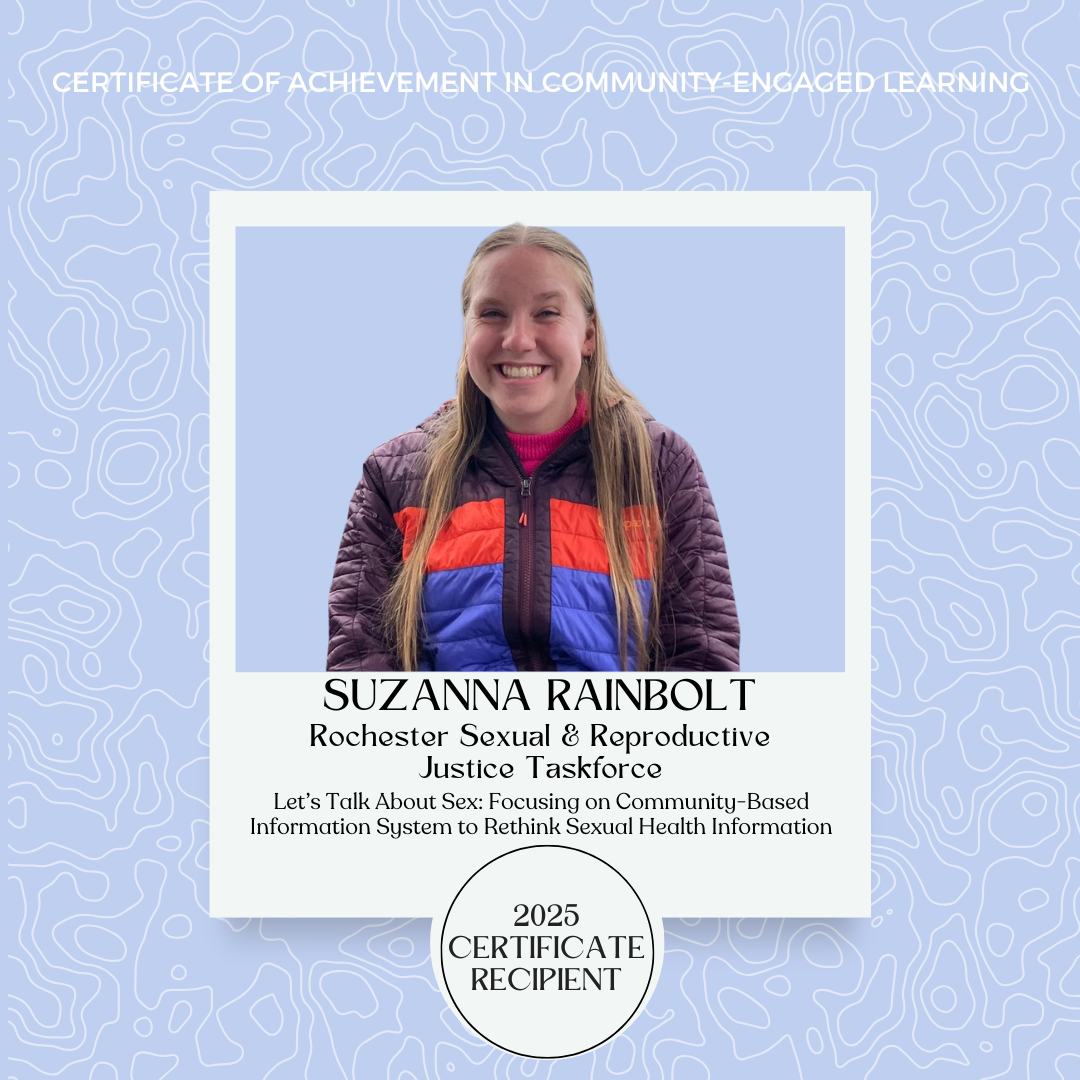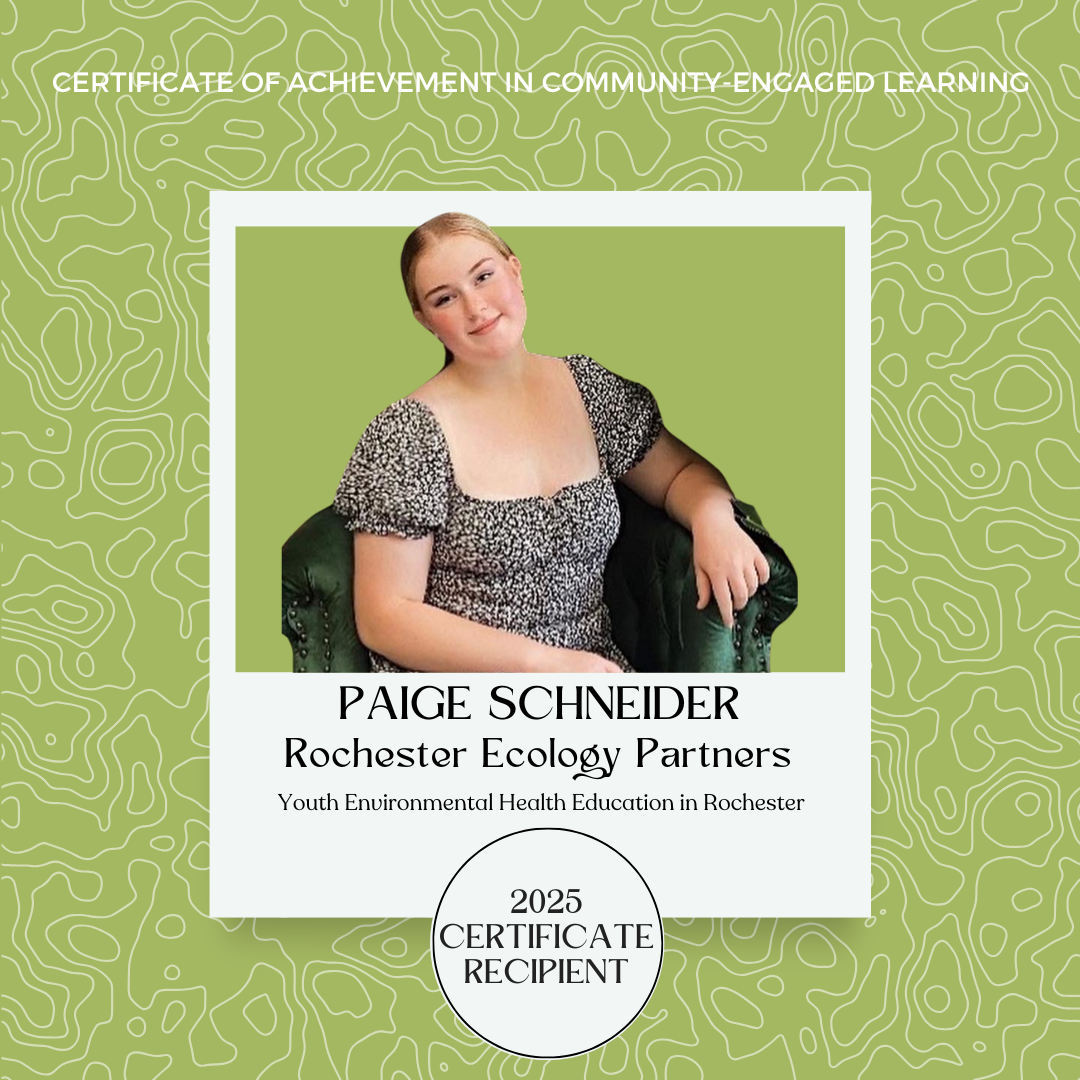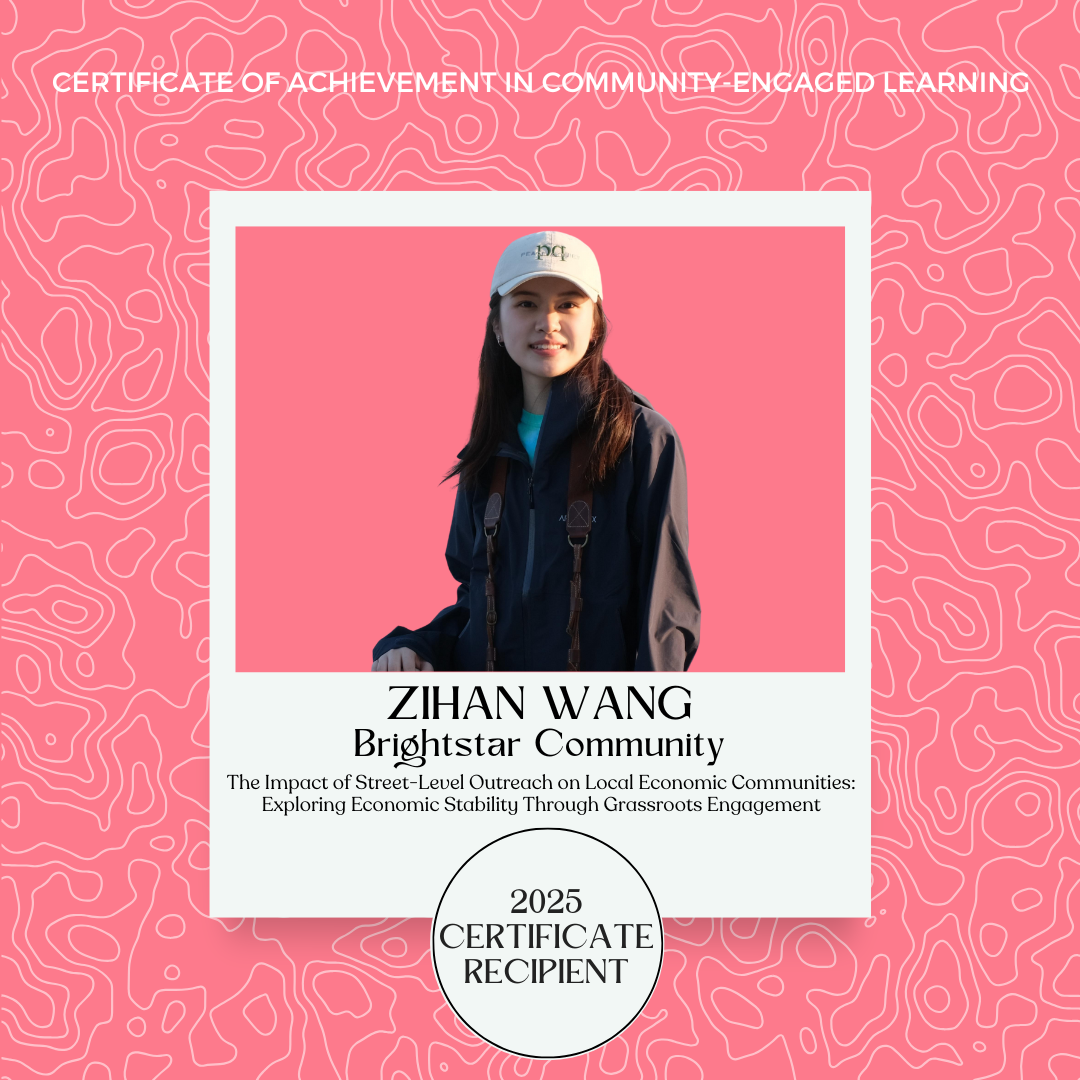Certificate of Achievement in Community-Engaged Learning
Overview
The Certificate in Community-Engaged Learning is a collaboration between the Center for Community Engagement (CCE), the dean of the College, and academic programs in the School of Arts and Sciences and the Hajim School. The program supports students, faculty, and community partners who combine teaching, research, and practice to build scholarship and address pressing issues facing communities locally, regionally, nationally, and globally.
Through pursuing an academic certificate in community-engaged learning, students passionate about integrated learning and responding to community-identified needs are able to design a course of study and practice that complements the Rochester Curriculum and their chosen areas of study. The certificate is designed to contextualize abstract theories, develop critical skills, and challenge assumptions that will prepare them for their future at Rochester and beyond. The capstone project should address the needs of under-served communities beyond campus and it should build the capacity of the partner organization leaving them with assets that outlast the time during which the student is completing their capstone project.
See the requirements page to learn more, or the application page to apply.

